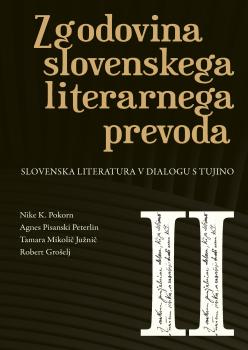Prevodne vrzeli
Synopsis
Literary exchanges through translations of Slovene literature with various foreign literatures vary in intensity: partly, less intensive exchanges are due to the peripheral status of each literature, and partly to the fact that there are no literary translators available for certain linguistic combinations. In the past, some of the main cultural figures in Slovenia prepared recommendations on the selection of works that they felt should be translated into Slovene. The last such list was drawn up in 1991 under the name of the “National Translation Programme” and included important works from both central and peripheral literatures from all periods. In the 21st century, such translation policies no longer exist. The paper outlines the history of literary-translation exchanges with those peripheral literatures with which Slovenes have shared political space: the literatures in Turkish and Albanian, which we encountered in socialist Yugoslavia, and the twelve official EU languages that are not covered in the other chapters of the edited volume. The overview shows that the exchanges are modest and unbalanced in terms of authorship and genre, and sometimes even unrepresentative: often only one genre is present or dominant (for example, children’s literature) or the selection of translated works reflects the specific tastes of translators specializing in a particular language.


